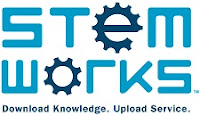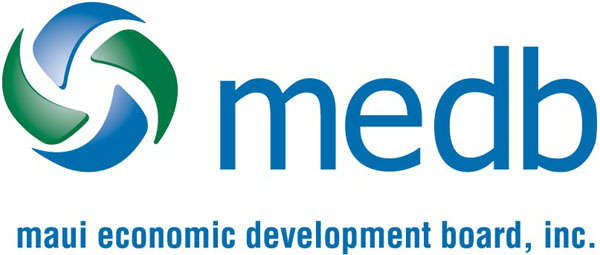"(1) A collection of essays entitled “Essays on Geography and GIS, Volume 4”, written by academicians and scientists, including Edelson, Goodchild, Dangermond, Artz, and others, dealing with trends in geography, geospatial matters, and GIS, is now available here:
http://www.esri.com/library/ebooks/essays-on-geography-gis-vol4.pdf
(2) I have created 7 videos (90 minutes of content, total) in a series entitled “Teaching Geography with ArcGIS Online” on the channelhttp://www.youtube.com/esriedteam, beginning here:This series began with an idea I had for a workshop I taught at the Geographical Association conference. The first 3 parts deal with “why and how can I teach geography with web-based GIS, specifically, ArcGISOnline” (www.arcgis.com) While they each give practical examples, parts 4 through 7 focus on in-depth examples, including global demographic analysis (birth rate, life expectancy, population change, by country), neighborhood deprivation and poverty, and lack thereof (using the UK as an example), plate tectonics (earthquakes, plates, volcanoes, including how to bring in real-time data into the analysis), and how to bring in your own data (by digitizing features on your computer screen, from the field via GPS and smartphones, adding real-time data, and how to add multimedia (video, photographs, sketches, text) to your maps."
Thursday, May 31, 2012
New eBook on Geography and GIS, Videos on Teaching Geography with ArcGIS Online
Joseph Kerski, Geographer and Education Manager at Esri, shares the following Geography and GIS resources below:
Friday, May 25, 2012
Low-cost Easy-to-Deploy GIS Data Collection
Joseph Kerski, Education Manager at ESRI, wants to know who is using the new GIS data collection tools that can map results in ArcGIS online or in ArcGIS for Desktop.
Dr. Kerski provides the following link of one of these new tools that can easily be left on the landscape to collect data: Air Quality Eggs
Dr. Kerski also provides the following link regarding an app for smartphones that collects "noise pollution" data:
http://noisetube.net/
Wow! Has anyone used an Air Quality Egg here in Hawai`i during the burning of the sugarcane fields?
Has anyone tested the level of noise pollution in your area and compared it with other areas?
Please share your data collection experiences!
Dr. Kerski provides the following link of one of these new tools that can easily be left on the landscape to collect data: Air Quality Eggs
Dr. Kerski also provides the following link regarding an app for smartphones that collects "noise pollution" data:
http://noisetube.net/
Wow! Has anyone used an Air Quality Egg here in Hawai`i during the burning of the sugarcane fields?
Has anyone tested the level of noise pollution in your area and compared it with other areas?
Please share your data collection experiences!
Wednesday, May 23, 2012
GIS Tornado Lesson
 Explore the effects of a tornado using pre and post imagery of the Harrisburg 29 February 2012 Tornado. Joseph J. Kerski, Education Manager at ESRI, presents the following tornado lesson and data set:
Explore the effects of a tornado using pre and post imagery of the Harrisburg 29 February 2012 Tornado. Joseph J. Kerski, Education Manager at ESRI, presents the following tornado lesson and data set:
Dr. Kerski also provides the following link of "post-tornado imagery (thanks to the folks at GeoEye) and pre-tornado and other data on ArcGIS Online":
http://www.arcgis.com/home/webmap/viewer.html?webmap=9d74088e35de470c90c9664a18fb394f "
What questions and answers did your class formulate regarding the Harrisburg tornado?
Friday, May 18, 2012
Updated Popular Lesson "Exploring 10 Landscapes" in the ArcLessons Library
 |
| Esri Screenshot of Exploring 10 Landscapes |
Joseph J. Kerski, Ph.D., Education Manager at Esri has updated and revised the popular “Exploring 10 Landscapes” Lesson. Dr. Kerski also generously provides a Bonus Landscape! See his description below:
"In this lesson, you will use ArcGIS Explorer Online to investigate 11 topographic map features and their surrounding landscapes.Objectives: Work with topographic maps, including features, elevation, measurement, and other aspects of these maps to understand physical and cultural processes and the results of those processes.Requirements: Web browserLevel: 5 Questions for 11 landscapes = 55 questions total.Students need to be familiar with topographic maps and some basics of physical and cultural geography to most effectively use this lesson.Landscape 1: Sand DunesLandscape 2: KarstLandscape 3: EskersLandscape 4: Plate TectonicsLandscape 5: SwampLandscape 6: GlaciersLandscape 7: RiversLandscape 8: Railroad-Influenced TownsLandscape 9: Modified CoastlinesLandscape 10: VolcanoesLandscape 11: Protected Areas - Waihe'e -MAUI !Activity: Students can work independently or in groups through each of the 11 activities. They could choose one of the 11 areas featured to construct a written report and/or an oral presentation to the class about the area they select.Revised 19 August 2011 with improvements and answer key. Updated: 11 May 2012."
How have you used online GIS tools in your classroom?
Wednesday, May 9, 2012
2012 STEMworks Conference GIS Winners
Congratulations to Sierra Harrell and Lotus Chen of King Kekaulike High School for winning the 2012 STEMworks Conference GIS Competition!
Sierra and Lotus, concerned about the safety of King Kekaulike students who walk to and from school, used GIS tools and software to map data collected from Pukalani school walking routes. Sierra and Lotus will submit their findings and concerns to the Department of Public Works in the hopes that their data will reveal the need for more sidewalks as well as show the best areas to install them.
An amazing example of using GIS to address a community concern!

Labels:
Awards,
Education,
GIS,
GPS,
GPS to GIS,
Online Map Tools,
Real World Use,
STUDENTS
GIS Activities for students: Make a hazard map!
 Joseph J. Kerski, Ph.D., Education Manager with ESRI, presents an easy and quick GIS educational opportunity for students:
Joseph J. Kerski, Ph.D., Education Manager with ESRI, presents an easy and quick GIS educational opportunity for students:"In less than 60 seconds, you and your students can make a map of earthquakes, storms, wildfires, and eruptions in the US (or the world, using Option B) with this Esri Web GIS tool:
http://mapapps.esri.com/disasters/create-map/hazard/index.html
And you can also embed the resulting map on a web page and use that as an assessment instrument or in a presentation!"
What tools do you use with your class to engage students in GIS education?
Labels:
Education,
GIS,
GIS Activities,
Online Map Tools
Subscribe to:
Comments (Atom)







